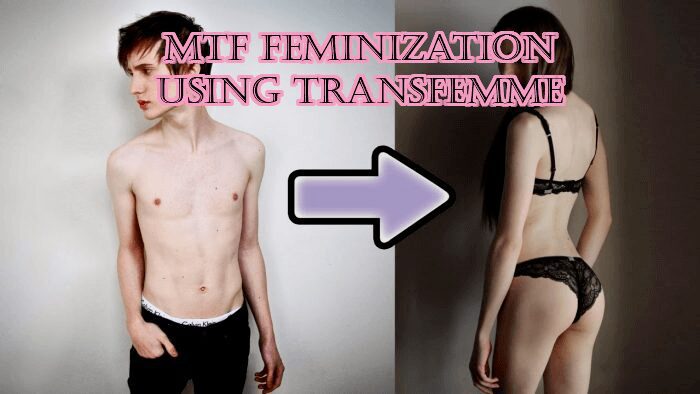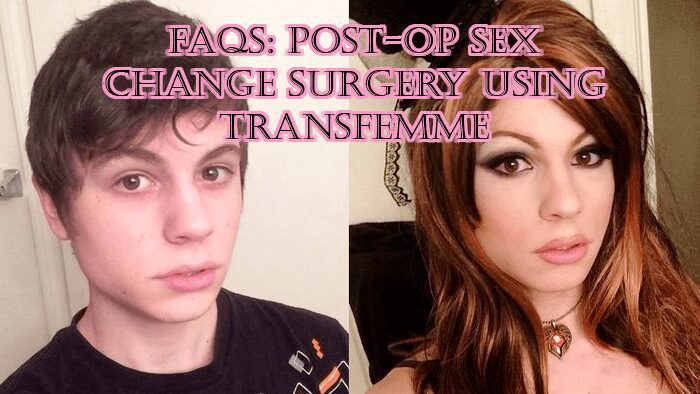
Estrogen Pills for Men
Estrogen can be prescribed by a physician for a male to female transitioning and after sex reassignment surgery. Not all men want to undergo the rigorous requirements and invasion of privacy to acquire estrogen pills. The main non-prescription estrogen pill for men is Transfemme®.
Where can I buy male to female hormones?
Transfemme® male to female hormones in pill and cream forms are available online on this website. Transfemme is a completely natural system to feminize the male body to varying degrees depending on which products you use and the dosages. We recommend calling one of our advisors on our Customer Success Team at 877-552-3033 or email us at customersuccessteam@transfemme.com
Male to Female Hormone Pills at Walmart
Walmart sells herbal pills that cause an insignificant feminization effect, these are not real male to female hormones. If you are thinking about buying male to female hormone pills at Walmart you need to understand that an herb does not stop testosterone, you will still have testosterone which is going to keep your body masculine. Walmart is not equipped or interested in helping you transition or grow breasts. Putting a small amount of phytoestrogen in your body is not going to give you the results you are looking for.
What hormones are used for Male to Female Transition?
Lupron, spironolactone, bicalutamide, flutamide, finasteride are normally prescribed hormones for a male to female transition. Lupron is given intramuscularly every sixty days to block total testosterone levels. This is an expensive treatment and insurance rarely pays for this. Finasteride reverses male pattern baldness because it blocks dihydrotestosterone (DHT), it does not block overall testosterone. We recommend using Transfemme® to cause your testosterone to aromatize into estrogen naturally to create MTF estradiol. What happens when a man takes female hormones? Female hormones can cause side effects in men, before taking prescription drugs you should carefully decide if these risks are acceptable and how much risk you may have based on age, weight, family history. The effects of estrogen on the male body are significant and the benefits should outweigh the risks when considering altering your hormones with prescription hormones.
What happens when a man takes female hormones?
The risks include high blood pressure, high blood sugar, inflammation, higher C-Reactive Protein, high cholesterol, type 2 diabetes, and weight gain, all of which can cause heart disease. Excessive prolactin or the formation of noncancerous tumors in your pituitary gland that causes prolactinoma. Blood clots called deep vein thrombosis or a pulmonary embolism, blood clots can also cause strokes.
Infertility, decreased libido, erectile dysfunction, gallstones, elevated liver enzymes. Once your testosterone levels decrease your sperm count will decrease and you will not be able to have children. Many men using hormones for a male to female transition are happy to have decreased erectile function, shrinking genitals they can tuck, and smaller testicles. Drugs have side effects, think carefully before you decide to do this. There are safer ways to still have great results without resorting to more extreme measures. We have helped thousands of pre- and post-op transwomen and men seeking partial feminization since 1996.
Transfemme® feminizing hormone therapy results vary in a time frame, generally, you will see changes anywhere from three weeks to three months. Everyone’s timeline looks slightly different. You can expect the following to occur: Areola enlargement: This usually occurs in the first month and can take three months. Customers usually report this is one of the first changes they see. Breast development: Will occur after one to six months of using Transfemme®. Our customers report seeing results for years. Female body fat distribution: This will start in two to six months after starting Transfemme®. Expect female body contouring to continue for five years. Testicular atrophy: You should expect to see this in three to six months of using Transfemme®. Atrophy will continue over two to three years! Decreased libido: This will begin one to three months after starting treatment. The maximum effect will occur within one to two years. Decreased spontaneous erections: This will begin one to three months after treatment. The maximum effect will occur within three to six months. Decreased facial hair: Our customers report seeing this in the first six months and continuing for two years.
“While taking Estrogen pills for men can cause your testicles and penis to shrink Transfemme® causes your body to aromatize your own testosterone into your own estrogen.”
Questions and Answers about Estrogen Pills for Men:
- Will taking estrogen change my voice? No, to alter your voice you need surgery and voice lessons.
- Will male to female hormones change my body structure? Unfortunately no, your body will not decrease in size. Are there any Clinical Trials for the effects of estrogen on the male body?
- Are there any Clinical Trials for the effects of estrogen on the male body? Yes, there is a clinical trial currently open at the Mayo Clinic. Here is a link to the trial. A Study to Evaluate The Effect of Transgender Hormone Therapy on Adipose Tissue Biology and Distribution https://www.mayo.edu/research/clinical-trials/cls-20454329
In transgender women or trans feminine people (MTF), the most commonly used medications are estrogens and anti-androgens. Administration of estrogen(via oral, sublingual, transdermal, intramuscular, or subcutaneous routes) lower serum testosterone levels, raise serum estradiol levels, and results in the development of typical female secondary sex characteristics including: breast growth, softer skin, decreased muscle mass, and female-pattern fat distribution.
These effects are largely reversible. Estrogen can also cause testicular and penile atrophy (ultimately resulting in potential erectile dysfunction and infertility). Some trans women also describe changes in emotions (e.g., more tearful) as well as decreased libido. Adverse effects can include increased risk for thrombosis, elevations in blood pressure, elevations in prolactin (rarely including the development of a prolactinoma), migraines, elevations in transaminases, and effects on fertility (although estrogen is not an effective contraceptive).
Estrogens will NOT heighten voice pitch, decrease facial hair, change facial bone structure, or reverse male-pattern baldness. Other methodologies would need to be employed (e.g., voice training, electrolysis or laser hair removal, facial feminization surgery, hair restoration, etc).
Anti-androgens (i.e. spironolactone, bicalutamide, flutamide, finasteride) are also commonly used in trans women who have not had an orchiectomy. These medications block the effects of testosterone, resulting in decreased erectile function and allowing estrogen to develop typical female secondary sex characteristics. Finasteride, however, specifically targets dihydrotestosterone (DHT), not testosterone, so it is not as effective at lowering total testosterone levels.
GnRH Agonists (i.e. Lupron) could also be used instead of Anti-Androgens to block endogenous testosterone production. Lupron is typically given intramuscularly every couple of months and is very effective at blocking total testosterone levels. However, it can be difficult to obtain insurance coverage for it, and is otherwise fairly expensive out of pocket.
Progesterones activate the androgen receptors slightly, so may be used to improve libido and mood. in some cases, it may be indicated to maximize breast growth, though this is likely happening via weight gain. Of note, some studies show a possible increased risk for VTE, cardiovascular disease and/or breast cancer with use.






